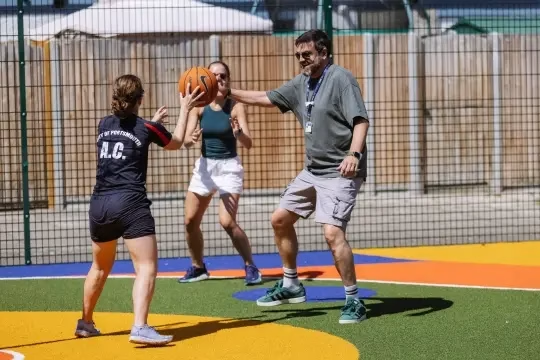
Enhancing Community Health through University-Driven Initiatives
Improving public health remains a priority for many academic institutions, and the University of Portsmouth exemplifies this commitment through strategic partnerships aimed at fostering active lifestyles. By collaborating with local organizations, the university is working to address inactivity levels in Portsmouth, ultimately aiming to enhance health outcomes and strengthen community engagement. This article explores how these initiatives are making a tangible difference in the lives of Portsmouth residents and how similar strategies can be adopted elsewhere.
Strategic Partnerships to Promote Physical Activity in Portsmouth
The University of Portsmouth has formed a consortium of local organizations, including Portsmouth City Council, Pompey in the Community, Sustrans, and others, to combat physical inactivity in the area. Funded by a share of Sport England’s £250 million investment, this collaboration is centered on deploying community coordinators who work directly with residents to understand barriers to activity and develop tailored solutions. The initiative targets areas like Landport and Buckland, where inactivity levels are particularly high, to create accessible and inclusive opportunities for movement and engagement.
Addressing health inequalities and promoting active lifestyles are crucial components of this partnership. With data indicating that over 14,000 children and more than 52,000 adults in Portsmouth do not meet recommended activity levels, targeted interventions are vital. The university’s role extends beyond research and policy, actively engaging with the community to foster sustainable health behaviors.
Innovative Projects: The Portsmouth Playce Initiative
One of the flagship projects under this partnership is PLAYCE Pompey, the UK’s first multi-movement activity space. Built using the innovative Athletic Skills Model, this vibrant and accessible space in Lord’s Court, Landport, aims to make physical activity enjoyable for residents of all ages. Spearheaded by the university’s School of Psychology, Sport and Health Sciences, the project exemplifies how academic expertise can translate into tangible community benefits.
Dr. Martina Navarro, the project’s academic lead, emphasizes that the initiative aims to break down barriers to movement and create sustainable, community-led solutions. By working closely with local residents, the university fosters an environment where physical activity becomes an integral part of everyday life, thereby improving overall health outcomes.
Impact on Public Health and Well-being
The implications of increased physical activity extend beyond immediate fitness. The university’s efforts, combined with the community-centric design of projects like PLAYCE, have the potential to generate substantial social value. Recent estimates suggest that the social benefits of regular exercise and improved mental health could contribute to public service cost savings of approximately £363 million in Portsmouth alone.
Additionally, the initiatives support broader goals such as reducing social inequalities, increasing access to green spaces, and fostering a sense of belonging and community pride. As resident engagement grows, so does the capacity for these projects to succeed and serve as models for other urban areas facing similar challenges.
Role of the University of Portsmouth in Advancing Community Health
The university’s commitment goes beyond project implementation. Through research, education, and policy development, the university’s School of Psychology, Sport and Health Sciences continually explores innovative approaches to health promotion. The integration of scientific models like ASM into community projects underscores the importance of evidence-based strategies in driving meaningful change.
Furthermore, university staff and students often participate in community outreach and awareness campaigns, amplifying the impact of these efforts. Such engagement not only benefits public health but also provides valuable experiential learning for students, preparing future professionals to continue progress in community health initiatives.
How Other Universities Can Emulate This Model
The success of Portsmouth’s partnership offers valuable lessons for other higher education institutions. Key steps include forming diverse collaborations with local agencies, leveraging research expertise to inform community programs, and adopting innovative frameworks like the Athletic Skills Model. Additionally, focusing on inclusive and accessible designs—such as multi-movement activity spaces—ensures that programs meet the needs of all community members.
Securing dedicated funding, like the Sport England investment, is critical to sustaining these initiatives. Universities should actively seek such opportunities and prioritize community engagement as a core part of their health promotion strategies.
Strengthening Communities Through Active Lifestyles
The partnerships between the University of Portsmouth and local organizations exemplify how academia can play a pivotal role in addressing public health challenges. By promoting physical activity through innovative projects, community engagement, and evidence-based approaches, these initiatives are helping Portsmouth residents lead healthier, more connected lives. Other universities looking to make a similar impact should consider adopting comprehensive, community-focused strategies that emphasize collaboration, innovation, and inclusion.
Fill out the form to schedule a free consultation with a Studygram expert and learn how you can pursue academic programs that align with your career goals.

